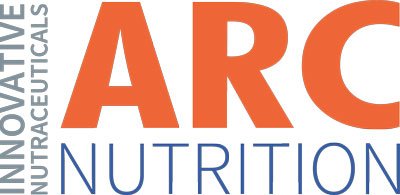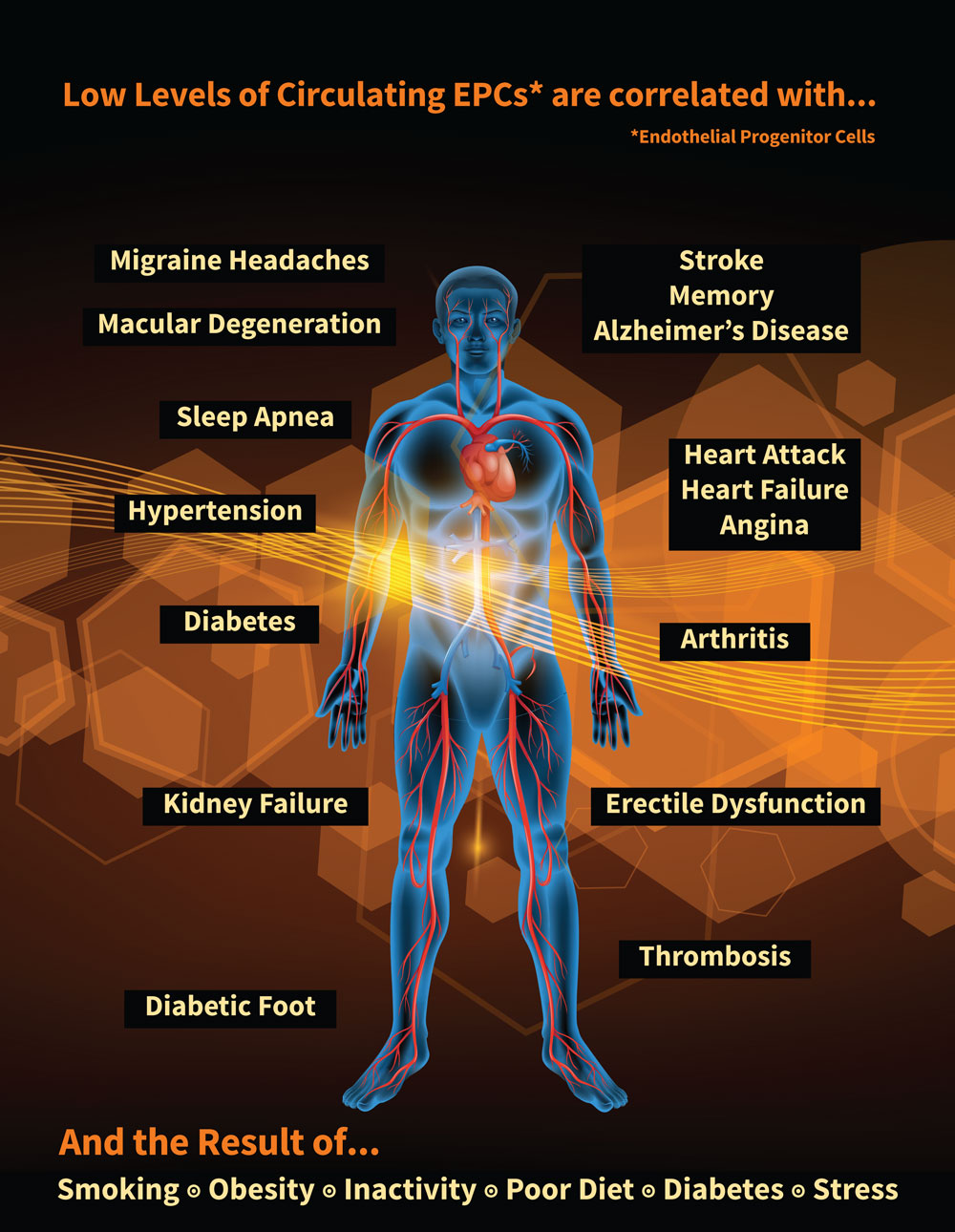Anti-Aging, Diabetes, Heart Disease, Joint Health, Smoking
Endothelial Dysfunction: Questions & Answers
What are EPCs?
EPCs are endothelial progenitor cells, a term that applies to several different cell types made in the bone marrow that enter your bloodstream to regenerate and repair the endothelial lining of your blood vessels.
What’s an endothelial lining?
Your endothelium is the inner lining of your blood vessels, and when your endothelium is healthy, your blood flows smoothly.
How do endothelial progenitor cells help?
EPCs are the cells that keep the tubes of your veins and arteries from springing a leak; they keep your circulatory pathways from degrading.
What happens when you’re low on EPCs?
Endothelial dysfunction is associated with almost every condition predisposing a person to atherosclerosis and cardiovascular risks like heart attack, heart failure, and stroke.
Endothelial dysfunction has been observed in patients with hypertension, a family history of hypertension, in smokers, in passive smokers, in aging patients, those with diabetes, obese patients, and individuals with inflammatory or infectious diseases. The risky indicator of endothelial dysfunction can be seen in the old and the young, can be caused by environmental factors, and can contribute to making related conditions worse. But it can also be fixed.
Endothelial dysfunction can be detected, treated, and prevented from reoccurring, but the damages done by cardiovascular diseases can be irreversible.
How do you know if you have the beginnings of dysfunction?
There are multiple testing methods to assess vascular function, and for good reason: reduced vascular function starves parts of your body of oxygenated blood. You breathe to stay alive, but if your blood vessels or circulatory operations are dysfunctional, you’re not getting the best of the oxygen you take in. There are two huge ways this hurts you: it puts you at greater risk of the above mentioned diseases, and it makes it harder for you to heal.




